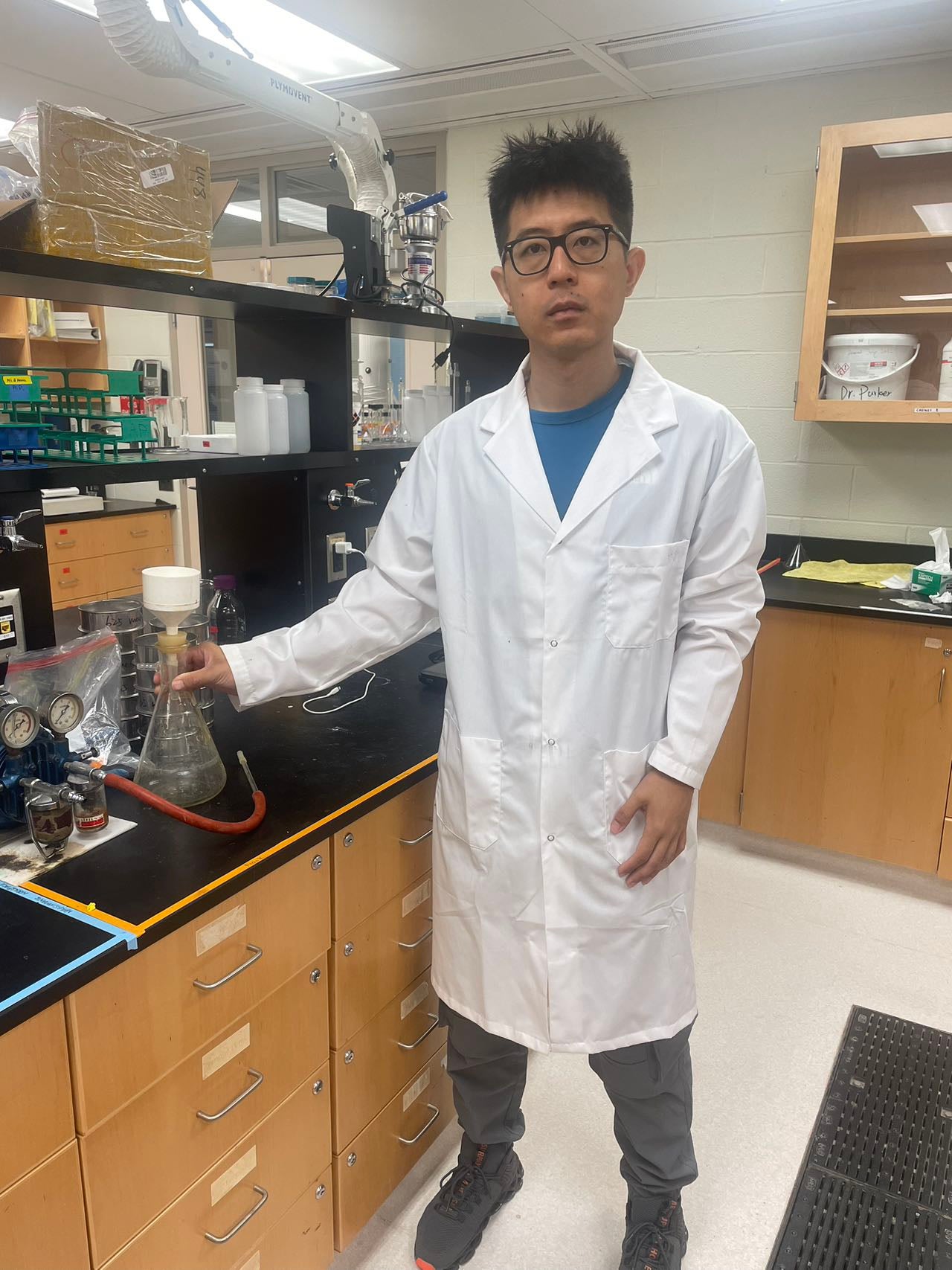Researcher Profile: Meet Frank Zhu

Frank Zhu is a passionate PhD candidate specializing in microplastic research under the guidance of Dr. Wayne Parker, a distinguished professor in environmental engineering focusing on wastewater treatment. With an environmental engineering background and a dedicated focus on microplastics, Frank's research aims to enhance our understanding of microplastic fate and transport in wastewater treatment plants (WWTPs) while contributing to effective management strategies for microplastic pollution.
As a valued member of the Microplastics Fingerprinting project, Frank collaborates with over 25 members of the research team from diverse disciplinary backgrounds. This interdisciplinary collaboration is instrumental in approaching the challenges and solutions associated with microplastics from a holistic perspective. Leveraging the expertise of researchers in environmental science, chemistry, biology, hydrology, and engineering, Frank actively contributes to this multidisciplinary team.
Frank's work focuses on improving microplastic identification by utilizing PlasticNet, a deep learning convolutional neural network. This innovative approach addresses the complexities associated with accurately identifying microplastics in environmental samples, accounting for factors such as additives, weathering effects, and variations in thickness. PlasticNet exhibits significant potential as an automatic recognition tool for microplastics in spite of spectra complexity. Furthermore, he tackles the issue of data uncertainty in microplastic enumeration. Through comprehensive investigations and modeling, he quantifies and reduces sources of error in the entire microplastic analysis process. Frank employs Bayesian uncertainty analysis and Markov Chain Monte Carlo methods to develop guidelines for reducing data uncertainty in microplastic enumeration. These insights pave the way for standardized analytical procedures and improved accuracy in microplastic quantification. In addition, Frank focuses on developing reliable mass balance models for microplastics in WWTPs. These models offer valuable insights into fragmentation dynamics, weight-based ecological impacts, and standardization across different studies and environments. Frank explores innovative strategies for microplastic mass quantification, incorporating variations in size and sample type into concentration estimations. By enhancing the accuracy of mass balance models, he contributes to a deeper understanding of microplastic fate and transport within WWTPs.
Overall, Frank Zhu's research significantly advances our knowledge of microplastic fate and transport in WWTPs. His work on microplastic identification, data uncertainty reduction, and mass balance modeling provides valuable insights and tools for effective microplastic management and pollution mitigation. Through interdisciplinary collaboration within the Microplastics Fingerprinting project, Frank actively contributes to the development of standardized guidelines, promotes knowledge sharing, and fosters sustainable practices in microplastic research and management.